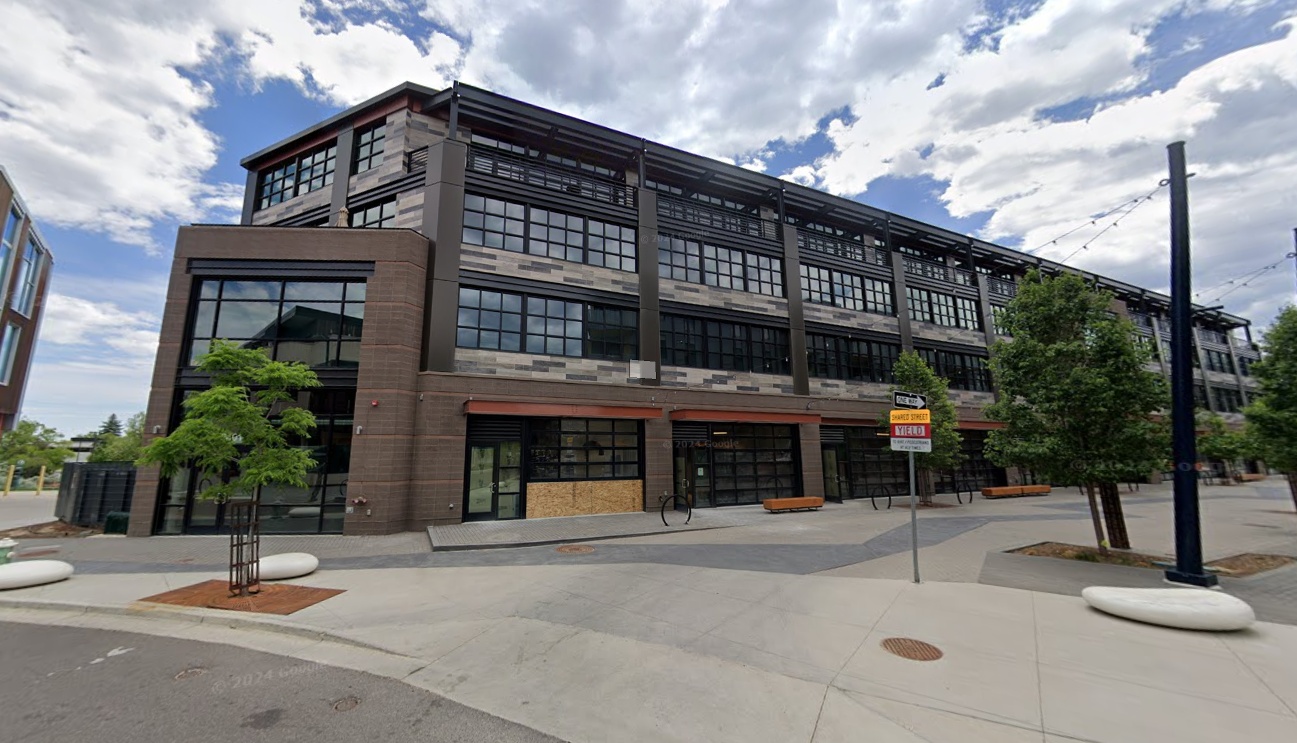
Google Maps

Audio By Carbonatix
A court ruled that Twitter broke the lease on a brand-new headquarters in Boulder shortly after Elon Musk purchased the social media company in 2022, requiring Musk’s corporation to pay $8.2 million in damages.
In 2020, Twitter signed a ten-year lease with Lot 2 SBO, a real estate company registered in Centennial. Just two years later, the social media company stopped paying rent at the 3401 Bluff Street location, according to Lot 2.
Twitter, which Musk has since renamed to X, argued that due to a technicality in the lease, the social media company shouldn’t have to pay rent on the office space at all. Therefore, Lot 2 had evicted them wrongfully.
But on May 23, Boulder County District Court Judge Nancy Salomone issued an order declaring Lot 2 had every right to evict X and collect damages in past-due rent. Salomone made her decision after a five-day bench trial in March.
According to the judge’s order, only one side had a legal leg to stand on.
“The Court finds that the language in question is not ambiguous,” Salomone ruled. “When its plain language is read together and in context, it is susceptible to only one interpretation.”
After Lot 2 sued X for unpaid rent, X countersued by highlighting an unusual provision in the lease related to Twitter’s completion of the inside of the building. Lot 2 had delivered the “core and shell” of the building while Twitter was responsible for the interior design so the 64,557-square-foot space could be customized to the company’s needs. Once the building was ready, the monthly base rent was $199,866.
Twitter spent $40 million tailoring the space to the company’s needs with kitchens, showers for those who biked to work and other specific design choices that have made the space difficult to re-lease, according to legal filings during the case.
Because of that investment, the lease allowed Twitter a $5.76 million Tenant Improvement Allowance that could be paid out or used as a rent credit once Twitter had completed certain documentation showing that the renovation work was done as long as the company hadn’t defaulted on the agreement prior to the completion of the renovation.
After Musk purchased Twitter in October 2022 the company paid rent for just one more month. In December 2022, Twitter didn’t pay, arguing the company could use the Tenant Improvement Allowance to cover rent. But Twitter hadn’t met the requirements to access that rent allowance, the court found.
First, Twitter had defaulted on the lease, completely cancelling out the company’s claim to the allowance; the company also argued a certain paragraph in the lease meant the company could still collect the allowance even in the case of a default.
“This would be non-sensical,” the judge wrote in her order.
Additionally, because Twitter still had outstanding third-party liens – to the tune of at least $90,000 – the company could not use the allowance to abate rent because some amount from the allowance may still have been needed to pay off those liens.
Plus, the judge found it was clear that X had planned not to pay rent for a business reason, rather than because the company believed it could use the allowance to cover rent – a decision made after Musk purchased Twitter but before he changed the name to X.
“The Court finds credible the extrinsic evidence offered through the testimony of Joseph Killian, a Twitter/X Corp senior project manager from 2021 until his separation from the company in December 2022, that Twitter had a policy and practice arising in December 2022 of not paying rent anymore as a ‘renegotiating tactic – tactic to save money,'” the judge wrote.
X had also accused Lot 2 of wrongful eviction for the company’s lockout of Twitter from the premises in June 2023, but the judge determined that Lot 2 had followed proper eviction procedures.
Despite ruling heavily in Lot 2’s favor, the order didn’t give the landlord the full amount requested in damages. Lot 2 had asked for $8.5 million, including $7.9 million in past-due rent and expenses, $7,500 in marketing expenses incurred trying to find a new tenant for the space, $8,172 in repairs, $11,845 in design fees and $550,294 in rent abatement.
The court granted the past-due rent as well as the marketing and repair costs, but not the design fees. Additionally, the court decided Lot 2 could only collect $350,425 in rent abatement. In total, X now owes Lot 2 $8.2 million, and that number could rise as the court also gave permission for Lot 2 to collect costs and reasonable attorney fees for the proceedings.